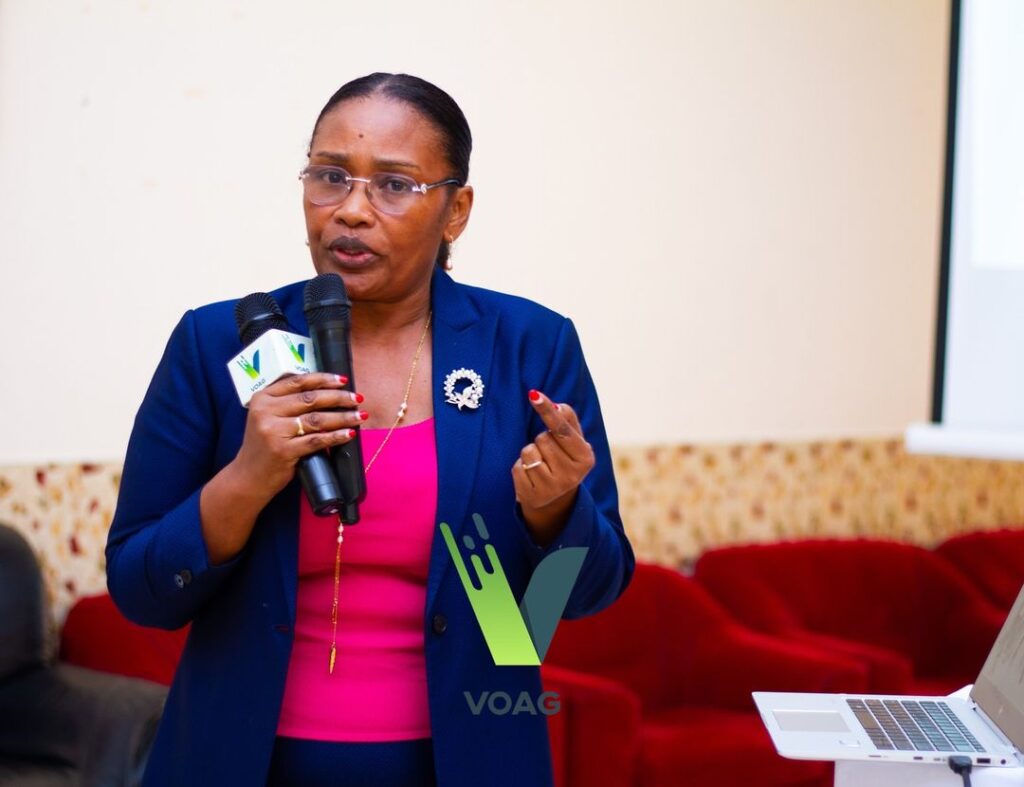Kilimokwanza.org Team
Dodoma, Tanzania:
In a move to revolutionize Tanzania’s poultry industry, the Permanent Secretary of the Ministry of Livestock and Fisheries, Prof. Riziki Shemdoe, has announced the introduction of a new poultry component to the Build Better Tomorrow for Livestock and Fisheries (BBT-LIFE) program.
The groundbreaking initiative is spearheaded by the President of the United Republic of Tanzania, Dr. Samia Suluhu Hassan, BBT-LIFE and aims to expand employment opportunities for women and youth across the nation, marking a new chapter in Tanzania’s agricultural development.
The Minister of Livestock and Fisheries, Hon. Abdallah Ulega, has been candid about comprehensive modernization of the sector by harness cutting-edge technologies and sustainable practices to dramatically increase productivity and efficiency in both livestock and fisheries industries, including, chickens.
The Ministry’s estimate for the poultry (chicken) population as of August 1, 2022, was 97,940,332, with an annual growth rate of 5.9%. Based on this growth rate, the projected chicken population in Tanzania by the end of December 2023 is approximately 106,226,005. The National Sample Census of Agriculture 2019/20 highlights the importance of poultry in Tanzanian agriculture, with chickens standing out as the primary source of animal-related income for the country’s households. Remarkably, chickens contribute to over half (53%) of the income from livestock, significantly surpassing that from cattle (32%), goats (10%), pigs (4%), and sheep (1%).
A Visionary Launch During a high-profile ceremony in Dodoma, Prof. Shemdoe inaugurated a dedicated committee to oversee the integration of stakeholders within the poultry value chain. This strategic alignment is poised to streamline operations and maximize the sector’s potential. His clarion call to livestock officers in all regions to identify and engage local stakeholders signifies a nationwide mobilization towards a unified goal.
Empowering Communities through Poultry Farming Prof. Shemdoe underscored the importance of the poultry sector, which already engages many Tanzanians. Highlighting the availability of funds in Councils earmarked specifically for women, youth, and people with disabilities, he emphasized the immediate need to build their capacity for farming. This approach not only addresses employment but also promotes inclusivity and self-reliance.
Incentivizing Excellence In a strategic move to accelerate the program’s rollout, the government announced incentives for regions and livestock officers who excel in implementing BBT-LIFE. This approach ensures a competitive and efficient execution of the program, maximizing its reach and impact.
Regional Response: A Case from Katavi The Livestock Officer of the Katavi region, Mr. Zidhery Mhando, shared insights into how his region is responding to these directives. With an ongoing identification of key stakeholders in the poultry industry, Katavi is setting a precedent in ensuring the sector’s contribution to both individual farmers and the national economy.
Challenges and Opportunities

In a revealing report, Ms. Elizabeth Swai, CEO of AKM Glitters Company Limited, a major player in the sector, pointed out the challenges of technological adaptation faced by farmers due to limited capital. This insight sheds light on the need for enhanced support and infrastructure to bridge the technological gap.
Ms Swai, is the the chairperson of the committee overseeing agreements between the private sector and the government through the Ministry of Livestock and Fisheries. She highlighted several pressing challenges facing the poultry sector. A key issue she pointed out is the lack of comprehensive data on poultry farmers, especially small-scale ones. This gap in information poses a significant hurdle in effectively supporting and developing the sector.
Another major concern addressed was the discrepancy between poultry and egg production versus market demand. The current production levels are unable to meet the increasing demand for poultry and eggs in the market. This imbalance not only affects the market dynamics but also limits the growth potential of the poultry industry.
To tackle these challenges, Ms Swai emphasized the need for stakeholders to increase the farming of egg-laying chickens. Boosting egg production is seen as a crucial step in meeting the market demand and addressing one of the industry’s significant challenges. By focusing on this aspect, stakeholders can help ensure a more balanced and sustainable poultry sector.
The meeting underscored the importance of addressing these issues collectively to support and grow the poultry sector, ultimately benefiting the country’s economy and the livelihoods of those involved in poultry farming.
Building on Success The BBT-LIFE program for the poultry industry is inspired by the successes already witnessed in the broader Livestock and Fisheries sectors. The positive impact on youth and women in these areas serves as a blueprint for the poultry initiative.
Looking Ahead The BBT-LIFE program is more than an agricultural reform; it’s a socio-economic catalyst. By empowering women and youth through poultry farming, Tanzania is not only diversifying its economy but also strengthening the fabric of its communities. As regions rally to implement this visionary program, a brighter future for Tanzania’s poultry industry, and its people, is on the horizon.
The launch of BBT-LIFE for the poultry industry symbolizes a significant stride towards sustainable development in Tanzania. By focusing on youth and women and addressing technological challenges, the program promises to transform the poultry sector into a robust pillar of the national economy, setting a precedent for other sectors to follow.
At KilimoKwanza.org- we turn agricultural information into powerful narratives. Have a story to tell? Email us at editor@kilimokwanza.org and let’s share it with the world.
